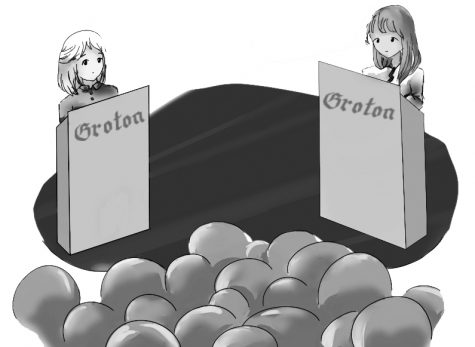Why Slut-Shaming Is Still an Issue
Generally, Groton culture emphasizes treating one another with respect. After all, how many schools still have students shake teachers’ hands every night? But there is one significant exception: slut-shaming. How many of us have been in conversations where a specific girl was described as a “slut,” or slightly less aggressively (but no less demeaningly) as a “hoe?” My best guess would be that most Groton students have.
It makes sense. The small community and hookup culture—which may have improved in recent years, but remains ever-present—create an atmosphere where everyone is immediately aware of hookups. This is not necessarily bad, but the judgement that often follows most certainly is.
The most concerning aspect of this problem is how generally accepted it is. There are a few similarly derogatory labels used around campus, but slut-shaming is different because the student consensus seems to hold that, if someone “earns” this sort of reputation, it becomes perfectly acceptable to refer to said person in that manner. If a third party chooses to intervene, the applicability of the insult—rather than the label itself—is usually debated. When people call a girl these slurs because of her clothing choices or past decisions, their effects reach beyond that girl.
Usage of terms like “hoe” and “slut” have a butterfly effect where, over time, they perpetuate double standards between genders. A culture is created whereby girls are targeted and scrutinized for their actions by boys and girls alike, while boys would never be judged in the same way for his decisions regarding hookups. (A guy who is romantically involved with many girls is regarded by other guys with something approaching reverence.)
Simply put, slut-shaming perpetuates a male-dominated power structure. For those who are accustomed to using demeaning language on a regular basis, this may seem like a vast overstatement, but it is crucial that we recognize the consequences of our words and attitudes.
Groton students need to change how quickly we judge based on gossip. One of the biggest factors behind this issue seems to be how students don’t understand or think about the impacts of their actions. It’s easy to call a girl a “hoe” in conversation. But it’s harder to consider how the demeaning labels will force that girl to change her behavior or risk the judgment of the Groton rumor mill. We cannot end slut-shaming by reserving it only for girls whose habits and romantic history we dislike—we must stop it at the source by calling it out for what it is. It’s a matter of simple respect.











